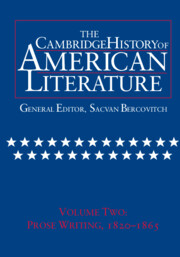1 - Exploration and Empire
from THE LITERATURE OF EXPANSION AND RACE
Published online by Cambridge University Press: 28 March 2008
Summary
Looking back on the years following the U.S. conquest of the territories of northern Mexico in 1848, the former Mexican military commander Mariano Vallejo concluded his five-volume Recuerdos históricos y personates tocante a la Alta California, completed in 1875, with an illuminating but unusual critique. Despite the Treaty of Guadalupe Hidalgo, he wrote,
the Americans have treated the Californians as a conquered people and not as citizens who willingly became part of that great family which, under the protection of that glorious flag that proudly waved at Bunker Hill, defied the attacks of European monarchs, those who, seated upon their tottering thrones, were casting envious eyes toward California and the other regions embraced within the great federation of the sons of liberty.
Vallejo's assessment, marked as it is by his consent to the ideology of American empire, has to be read in the context of his own highly nationalistic narrative, and his views were by no means representative of the newly colonized Mexican people of the Southwest and California. Yet his memoir sums up the important paradoxes generated during nineteenth-century American expansion by the clash between the liberating ideals of democracy and the contrary drive to territorial acquisition, just as his own life symbolically reflected the ambiguities of national allegiance and power in the contested lands of the American continent.
- Type
- Chapter
- Information
- The Cambridge History of American Literature , pp. 125 - 174Publisher: Cambridge University PressPrint publication year: 1995
- 1
- Cited by

